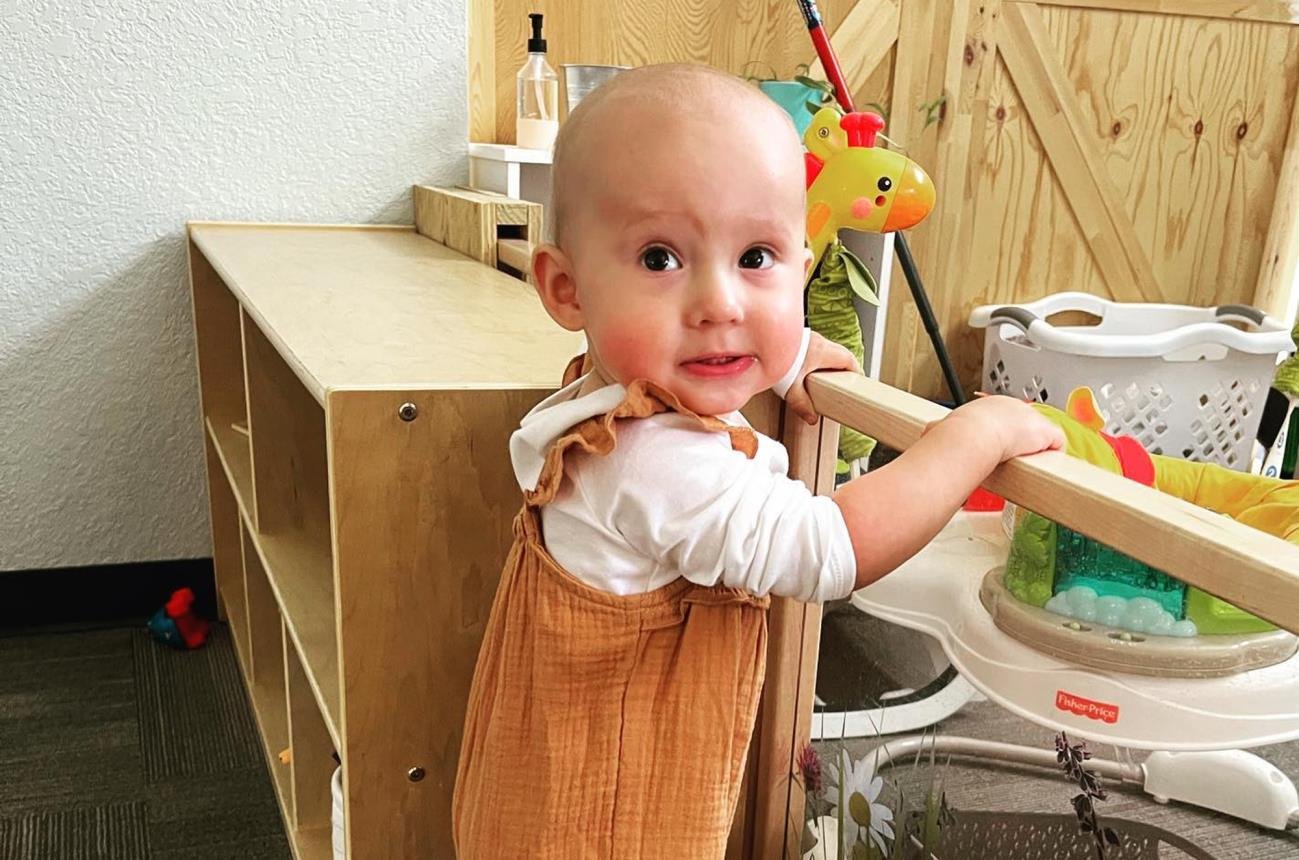Finding the Perfect Quality Infant Care for Your Precious One
Finding the perfect quality infant care for your precious one is a significant decision every parent faces. It's not just about ensuring safety and nourishment; it's about creating an environment supporting their earliest development stages. At Nourish Early Learning, we understand the importance of this decision.
We offer a compassionate and stimulating environment where your infant can thrive under the care of dedicated professionals. Our approach is designed to foster physical, emotional, and cognitive growth, helping each child to explore and learn at their own pace. Join us as we explore vital factors when choosing the best infant care.
What to Look for in High-Quality Infant Care
When choosing a care facility, it's crucial to prioritize settings that offer high-quality infant care. This encompasses various aspects, from the qualifications of the staff to the physical environment your child will be in. Here's what to look for:
Staff Credentials: Emphasis on Training and Certification
The quality of care your infant receives is directly tied to the professionalism and skills of the caregivers. A high-quality infant care center should have staff with specialized training in early childhood education.
Certifications such as CPR and first aid are fundamental, but additional qualifications in child development and early childhood education are also needed. These certifications ensure that caregivers are prepared to handle emergencies and proficient in fostering cognitive and social development at critical early stages.
Child-to-Caregiver Ratio: Benefits of Low Ratios
The ratio of children to caregivers is pivotal in determining the quality of care. A lower ratio means more one-on-one attention for your infant, which is essential during this developmental phase. Optimal ratios vary by age, but a 1:3 or 1:4 caregiver-to-child ratio is generally recommended for infants.
This setting allows caregivers to respond quickly to an infant's needs, from feeding and changing to comforting and engaging in developmental activities. Such attention ensures that each child's developmental milestones are met and they receive personalized care and interaction, promoting emotional and social growth.
Safety Standards: Importance of a Secure and Clean Setting
A safe environment is non-negotiable for infant care. The facility should adhere to strict health and safety standards to protect all children. This includes regularly cleaning and sanitizing toys and surfaces, secure premises, and well-maintained equipment. Additionally, check for a clear and practiced emergency plan that includes evacuation procedures and staff roles during a crisis.
Cleanliness: Daily cleaning logs and visible cleanliness in the care areas show a commitment to the children's health.
Security: Controlled access points and visitor screening procedures safeguard children from external threats.
Safety Preparations: Regular safety drills and updated emergency contacts and protocols are essential practices.
When visiting potential care facilities, observe the interaction between staff and children and the cleanliness and organization of the space. These factors often reflect the overall quality of care provided, offering you insight into whether the environment is one in which your infant will thrive. Always remember that a high-quality infant care setting ensures your child's well-being and development and provides peace of mind while you are away.
Stimulating Early Development
Their everyday interactions and environment profoundly influence infants' early development. A quality infant care center will provide a rich setting that promotes various developmental milestones through educational play, thoughtful space design, and peer interactions.
Educational Play: Key Activities for Early Learning
Educational play is crucial in stimulating an infant's cognitive, motor, and emotional development. High-quality infant care facilities incorporate various activities tailored to an infant's growth stages. Here are some key activities:
Sensory Play: Activities like playing with textured balls or soft blocks enhance sensory and motor skills.
Storytime: Reading aloud helps with language acquisition and can foster a lifelong love of reading.
Music and Movement: Playing soft music and gently moving babies in rhythm can stimulate brain development and motor skills.
These activities are designed to entertain and challenge infants, helping them reach new developmental milestones in a fun and engaging way.
Space Design: Impact of the Physical Environment
The design of the space where infants learn and play is another critical aspect of stimulating early development. A well-designed infant care environment will:
Safety: Ensure all areas are baby-proofed with non-toxic materials, secure furniture, and safe play equipment.
Stimulation: Include bright colors, varied textures, and interactive elements that invite curiosity and exploration.
Comfort: Provide areas for rest and quiet time, which are essential for young children's growth and well-being.
Good design fosters an atmosphere where children feel secure, stimulated, and engaged, making it an ideal early learning and development setting.
Peer Interaction: Supporting Social Skills
While infants may not interact with each other like older children, early peer interactions are vital for social development. In a quality care setting, infants engage with their peers under the supervision of caregivers, which helps them develop social skills such as:
Empathy: Being around other children helps infants learn about shared experiences and emotional responses.
Communication: Babies learn a lot from watching and listening to others, even before they can speak.
Turn-taking and Sharing: Simple games like rolling a ball back and forth can teach infants the basics of interactive play and cooperation.
High-quality infant care centers play a crucial role in facilitating infants' all-around development by focusing on educational play, designing an enriching space, and fostering early peer interactions. This holistic approach ensures that children are not only cared for but also given the best start to their educational journey.
Nutrition in Infant Care
Proper nutrition is fundamental to the healthy growth and development of infants. One essential factor for quality infant day care is ensuring that nutritional needs are met through balanced diets and individualized care for dietary requirements. High-quality infant care centers prioritize a nutrition program that supports each child's developmental needs in these ways:
Balanced Diets: Role of Nutrition in Growth
A balanced diet is essential for infants, providing the necessary nutrients for physical growth, brain development, and a strong immune system. Quality infant care centers should offer meal plans that include:
Macronutrients: Adequate proteins, carbohydrates, and fats are crucial for energy and growth.
Micronutrients: Vitamins and minerals support developmental milestones and overall health.
Variety: A range of foods introduces babies to different tastes and textures, promoting healthy eating habits.
Each meal should be carefully planned to meet the nutritional guidelines appropriate for the infant's age and developmental stage. Menus should be diverse to ensure all nutritional needs are met and include foods that are easy to digest and non-allergenic to minimize potential reactions.
Dietary Needs: Addressing Individual Health Requirements
Infants may have specific dietary needs based on allergies, sensitivities, or health conditions. High-quality care involves:
Customized Meal Plans: These plans tailor food choices to accommodate special dietary needs, such as lactose intolerance or gluten sensitivity.
Allergy Management: Implementing strict protocols to avoid cross-contamination and effectively manage allergic reactions.
Regular Updates: Keeping parents informed and involved in any changes to diet plans or observed dietary reactions.
Nutrition in early life sets the foundation for lifelong health and eating patterns. Therefore, ensuring that infants receive a balanced diet and individualized care regarding their nutritional needs is paramount in a quality infant care setting. This commitment to nutrition supports optimal growth and development and instills healthy habits from the earliest stages of life.
Emotional Support
Emotional support in infant care is as critical as physical health and safety. It lays the groundwork for how children will engage with the world around them as they grow. Quality infant care centers focus on building trust with each child and providing responsive care to foster a secure, supportive environment.
Building Trust: Creating a Secure Emotional Base
The foundation of emotional support in infant care is building trust between the caregiver and the child. Trust is established when caregivers consistently meet the needs of infants, providing comfort and assurance through their presence and actions. This secure base has several key components:
Consistency of Care: Having the same caregivers consistently respond to a child's needs helps form a bond of trust. Infants learn to rely on these individuals for comfort and security.
Sensitive and Warm Interactions: To convey safety and affection, caregivers should engage in gentle, warm interactions, such as smiling, soft speaking, and tender touch.
Predictable Routines: Established routines around feeding, napping, and playtime create a predictable environment that helps infants feel secure.
These practices reassure infants that they are in a safe and loving environment where their emotional and physical needs will be met.
Responsive Care: Understanding and Reacting to Infant Cues
Responsive care is about observing and interpreting infants' cues and reacting appropriately to meet their emotional and developmental needs. This aspect of care requires:
Attention to Signals: Caregivers need to be highly attuned to infants' signals, such as cries, smiles, and gestures, and understand what these signals mean, whether the infant is hungry, tired, uncomfortable, or needs affection.
Timely Responses: Responding quickly to an infant's cues is crucial. It helps the infant learn that they can communicate their needs and that their caregiver will respond, which is essential for emotional development.
Appropriate Reactions: The response should be prompt and appropriate to the cue. For example, a crying infant may need a diaper change, feeding, or a cuddle.
Emotional support through building trust and responsive care in a high-quality infant care setting helps nurture emotionally healthy and secure children. These early interactions support immediate well-being and shape a child's ability to form healthy relationships in the future, making them essential components of effective infant care.
Conclusion
Finding the perfect quality infant care for your precious one is an important decision that profoundly influences their early development. From ensuring highly qualified caregivers to fostering an environment ripe for educational play and providing meticulous attention to nutrition and emotional support, every detail matters. At Nourish Early Learning, we're dedicated to offering a safe, nurturing, and stimulating environment where your infant can flourish, ensuring peace of mind for you and a happy, healthy start for your child.
Contact us today to learn more about our programs or to schedule a visit. We're here to answer any questions and help you discover how Nourish Early Learning can meet your family's needs. Call us at 567-3132397 or visit our contact page to get in touch. We look forward to welcoming you and your little one into our family!









